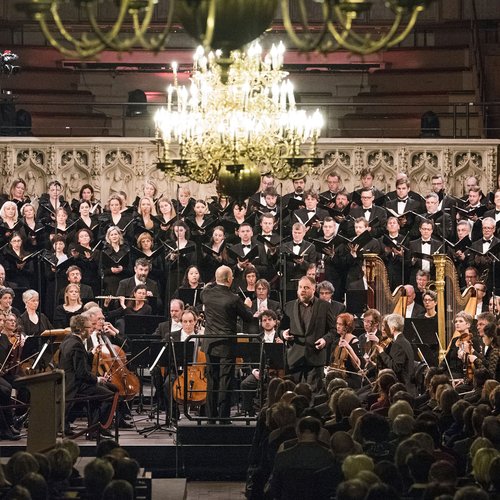Johannes Brahms: A German Requiem
What is so ‘German’ about this requiem, then? Why the additional word in the title? After all, we never refer to Fauré’s ‘French Requiem’ or Mozart’s ‘Austrian Requiem’.
So, what was at the root of Brahms giving his work such a proudly nationalistic name?
For the answer, we need to consider the nature of religious faith in Germany at the time. Here was a country where Luther had come to prominence, and where Catholicism was by no means the sole expression of Christian belief. By choosing Luther as his inspiration, and describing this work overtly as 'A German Requiem', Brahms was expressing what it meant to be German. He was also setting direct biblical passages, rather than choosing as his text the liturgies of a particular church.
Rather like one of the best contemporary requiems, that of Classic FM's erstwhile Composer in Residence Howard Goodall, A German Requiem is not primarily a Mass for the dead. Instead, it is intended as comfort for those who mourn and who feel the pain of the death of others. By the time he began writing the work in 1865, Brahms had just experienced such loss extremely personally: his mother had died that very same year.
Recommended Recording
(Piano-duet version) Susan Gritton (soprano); Hanno Muller-Brachmann (bass-baritone); Jose Gallardo (piano); Evgenia Rubinova (piano); Choir of King’s College, Cambridge; Stephen Cleobury (conductor). EMI Classics: 3669482.
Johannes Brahms: A German Requiem












